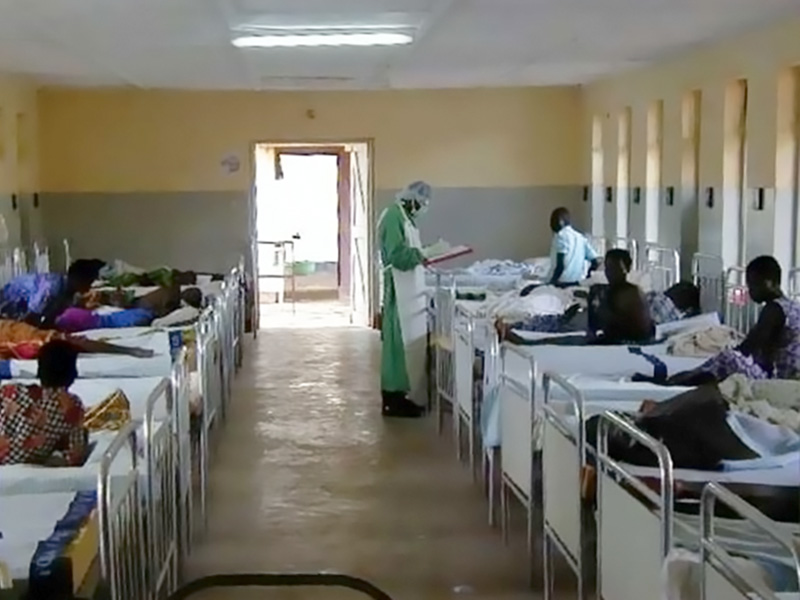Isolation Ward on:
[Wikipedia]
[Google]
[Amazon]
 In hospitals and other medical facilities, an isolation ward is a separate ward used to isolate patients with
In hospitals and other medical facilities, an isolation ward is a separate ward used to isolate patients with
"Isolating patients in hospital to control infection. Part III--Design and construction of isolation accommodation."
''British Medical Journal'' However, in some circumstances, especially in areas experiencing a major epidemic, makeshift isolation wards can be constructed.
Infection control during filoviral hemorrhagic fever outbreaks: preferences of community members and health workers in Masindi, Uganda
/ref> Many major passenger ships contain separate wards which can be converted for use in isolating patients.Marjo Hallowell 200
Cruise is over at first port as hundreds fall prey to illness
/ref>
 In hospitals and other medical facilities, an isolation ward is a separate ward used to isolate patients with
In hospitals and other medical facilities, an isolation ward is a separate ward used to isolate patients with infectious
An infection is the invasion of tissues by pathogens, their multiplication, and the reaction of host tissues to the infectious agent and the toxins they produce. An infectious disease, also known as a transmissible disease or communicable dis ...
diseases. Several wards for individual patients are usually placed together in an isolation unit.
Design
In an isolation unit, several measures must be implemented in order to reduce the spread of infection. The units are generally placed away from the main hospital, and staff often only work in that unit. In some hospitals, the unit is placed in a separate building. Ventilation is important to reduce the transmission of airborne spores, and the most severely affected patients are placed in separate wards.K D Bagshawe; R Blowers; O M Lidwell (197"Isolating patients in hospital to control infection. Part III--Design and construction of isolation accommodation."
''British Medical Journal'' However, in some circumstances, especially in areas experiencing a major epidemic, makeshift isolation wards can be constructed.
Use
Isolation wards are used to isolate patients who pose a risk of passing a potentially harmful infection on to others. Such infections can range in severity widely, from diseases such asinfluenza
Influenza, commonly known as "the flu", is an infectious disease caused by influenza viruses. Symptoms range from mild to severe and often include fever, runny nose, sore throat, muscle pain, headache, coughing, and fatigue. These symptom ...
to ebola
Ebola, also known as Ebola virus disease (EVD) and Ebola hemorrhagic fever (EHF), is a viral hemorrhagic fever in humans and other primates, caused by ebolaviruses. Symptoms typically start anywhere between two days and three weeks after bec ...
, although more precautions are generally taken with diseases of a higher mortality rate.
Outside major hospitals, isolation wards can be set up to control infection in crowded places, or those lacking substantial medical facilities.''Transactions of the Royal Society of Tropical Medicine and Hygiene'' 200Infection control during filoviral hemorrhagic fever outbreaks: preferences of community members and health workers in Masindi, Uganda
/ref> Many major passenger ships contain separate wards which can be converted for use in isolating patients.Marjo Hallowell 200
Cruise is over at first port as hundreds fall prey to illness
/ref>
See also
* Barrier nursing *Infection control
Infection prevention and control is the discipline concerned with preventing healthcare-associated infections; a practical rather than academic sub-discipline of epidemiology. In Northern Europe, infection prevention and control is expanded fro ...
References
{{reflist Types of health care facilities Infectious diseases